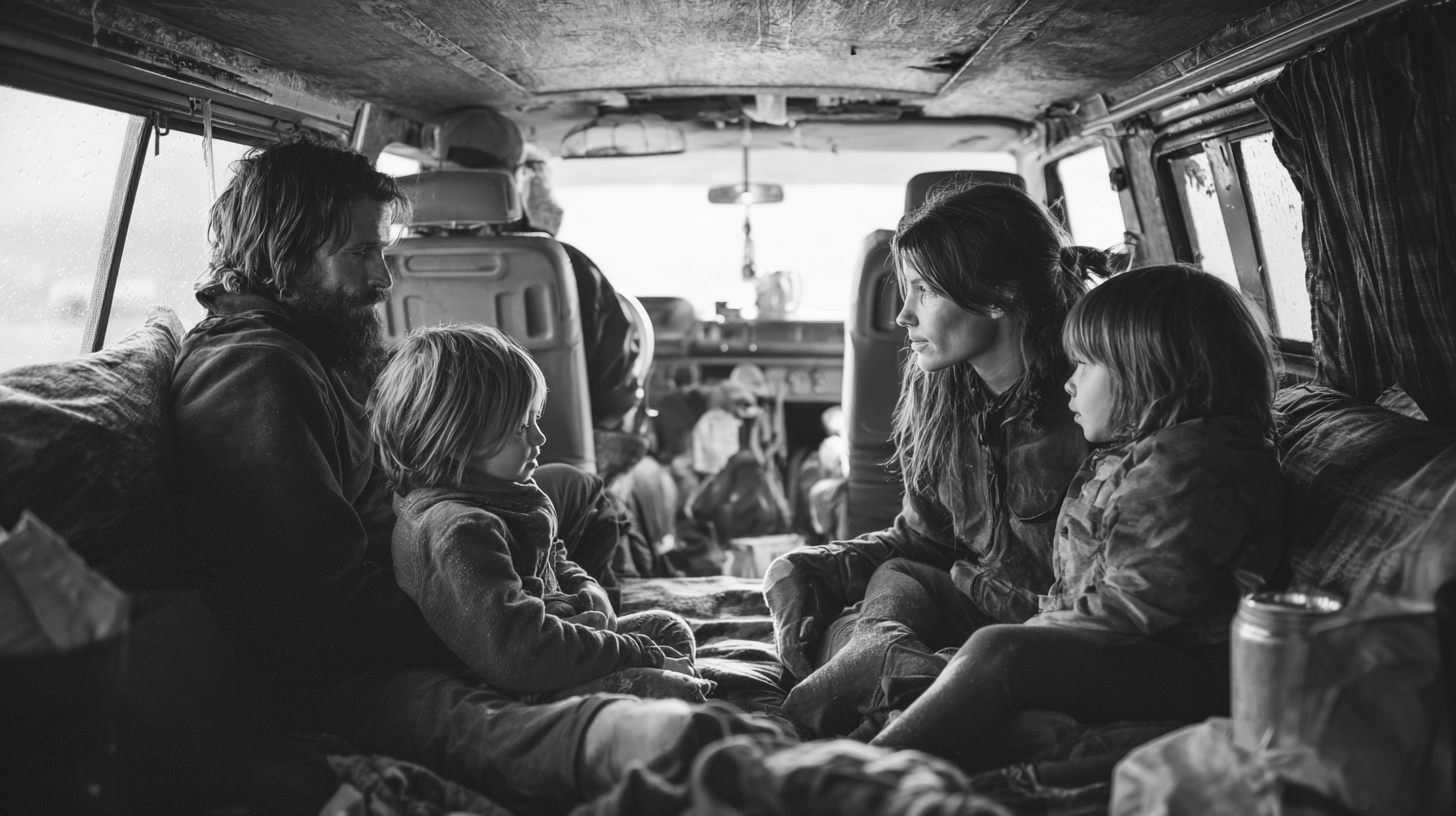Today's Scriptures | Numbers 30-31; Mark 9:30-50
Numbers 30-31
Vows
30 [a]Moses said to the heads of the tribes of Israel: “This is what the Lordcommands: 2 When a man makes a vow to the Lord or takes an oath to obligate himself by a pledge, he must not break his word but must do everything he said.
3 “When a young woman still living in her father’s household makes a vow to the Lord or obligates herself by a pledge 4 and her father hears about her vow or pledge but says nothing to her, then all her vows and every pledge by which she obligated herself will stand. 5 But if her father forbids her when he hears about it, none of her vows or the pledges by which she obligated herself will stand; the Lord will release her because her father has forbidden her.
6 “If she marries after she makes a vow or after her lips utter a rash promise by which she obligates herself 7 and her husband hears about it but says nothing to her, then her vows or the pledges by which she obligated herself will stand.8 But if her husband forbids her when he hears about it, he nullifies the vow that obligates her or the rash promise by which she obligates herself, and the Lordwill release her.
9 “Any vow or obligation taken by a widow or divorced woman will be binding on her.
10 “If a woman living with her husband makes a vow or obligates herself by a pledge under oath 11 and her husband hears about it but says nothing to her and does not forbid her, then all her vows or the pledges by which she obligated herself will stand. 12 But if her husband nullifies them when he hears about them, then none of the vows or pledges that came from her lips will stand. Her husband has nullified them, and the Lord will release her. 13 Her husband may confirm or nullify any vow she makes or any sworn pledge to deny herself.[b] 14 But if her husband says nothing to her about it from day to day, then he confirms all her vows or the pledges binding on her. He confirms them by saying nothing to her when he hears about them. 15 If, however, he nullifies them some time after he hears about them, then he must bear the consequences of her wrongdoing.”
16 These are the regulations the Lord gave Moses concerning relationships between a man and his wife, and between a father and his young daughter still living at home.
Vengeance on the Midianites
31 The Lord said to Moses, 2 “Take vengeance on the Midianites for the Israelites. After that, you will be gathered to your people.”
3 So Moses said to the people, “Arm some of your men to go to war against the Midianites so that they may carry out the Lord’s vengeance on them. 4 Send into battle a thousand men from each of the tribes of Israel.” 5 So twelve thousand men armed for battle, a thousand from each tribe, were supplied from the clans of Israel. 6 Moses sent them into battle, a thousand from each tribe, along with Phinehas son of Eleazar, the priest, who took with him articles from the sanctuary and the trumpets for signaling.
7 They fought against Midian, as the Lord commanded Moses, and killed every man. 8 Among their victims were Evi, Rekem, Zur, Hur and Reba—the five kings of Midian. They also killed Balaam son of Beor with the sword. 9 The Israelites captured the Midianite women and children and took all the Midianite herds, flocks and goods as plunder. 10 They burned all the towns where the Midianites had settled, as well as all their camps. 11 They took all the plunder and spoils, including the people and animals, 12 and brought the captives, spoils and plunder to Moses and Eleazar the priest and the Israelite assembly at their camp on the plains of Moab, by the Jordan across from Jericho.
13 Moses, Eleazar the priest and all the leaders of the community went to meet them outside the camp. 14 Moses was angry with the officers of the army—the commanders of thousands and commanders of hundreds—who returned from the battle.
15 “Have you allowed all the women to live?” he asked them. 16 “They were the ones who followed Balaam’s advice and enticed the Israelites to be unfaithful to the Lord in the Peor incident, so that a plague struck the Lord’s people. 17 Now kill all the boys. And kill every woman who has slept with a man, 18 but save for yourselves every girl who has never slept with a man.
19 “Anyone who has killed someone or touched someone who was killed must stay outside the camp seven days. On the third and seventh days you must purify yourselves and your captives. 20 Purify every garment as well as everything made of leather, goat hair or wood.”
21 Then Eleazar the priest said to the soldiers who had gone into battle, “This is what is required by the law that the Lord gave Moses: 22 Gold, silver, bronze, iron, tin, lead 23 and anything else that can withstand fire must be put through the fire, and then it will be clean. But it must also be purified with the water of cleansing. And whatever cannot withstand fire must be put through that water.24 On the seventh day wash your clothes and you will be clean. Then you may come into the camp.”
Dividing the Spoils
25 The Lord said to Moses, 26 “You and Eleazar the priest and the family headsof the community are to count all the people and animals that were captured.27 Divide the spoils equally between the soldiers who took part in the battle and the rest of the community. 28 From the soldiers who fought in the battle, set apart as tribute for the Lord one out of every five hundred, whether people, cattle, donkeys or sheep. 29 Take this tribute from their half share and give it to Eleazar the priest as the Lord’s part. 30 From the Israelites’ half, select one out of every fifty, whether people, cattle, donkeys, sheep or other animals. Give them to the Levites, who are responsible for the care of the Lord’s tabernacle.”31 So Moses and Eleazar the priest did as the Lord commanded Moses.
32 The plunder remaining from the spoils that the soldiers took was 675,000 sheep, 33 72,000 cattle, 34 61,000 donkeys 35 and 32,000 women who had never slept with a man.
36 The half share of those who fought in the battle was:
337,500 sheep, 37 of which the tribute for the Lord was 675;
38 36,000 cattle, of which the tribute for the Lord was 72;
39 30,500 donkeys, of which the tribute for the Lord was 61;
40 16,000 people, of whom the tribute for the Lord was 32.
41 Moses gave the tribute to Eleazar the priest as the Lord’s part, as the Lordcommanded Moses.
42 The half belonging to the Israelites, which Moses set apart from that of the fighting men— 43 the community’s half—was 337,500 sheep, 44 36,000 cattle,45 30,500 donkeys 46 and 16,000 people. 47 From the Israelites’ half, Moses selected one out of every fifty people and animals, as the Lord commanded him, and gave them to the Levites, who were responsible for the care of the Lord’s tabernacle.
48 Then the officers who were over the units of the army—the commanders of thousands and commanders of hundreds—went to Moses 49 and said to him, “Your servants have counted the soldiers under our command, and not one is missing. 50 So we have brought as an offering to the Lord the gold articles each of us acquired—armlets, bracelets, signet rings, earrings and necklaces—to make atonement for ourselves before the Lord.”
51 Moses and Eleazar the priest accepted from them the gold—all the crafted articles. 52 All the gold from the commanders of thousands and commanders of hundreds that Moses and Eleazar presented as a gift to the Lord weighed 16,750 shekels.[c] 53 Each soldier had taken plunder for himself. 54 Moses and Eleazar the priest accepted the gold from the commanders of thousands and commanders of hundreds and brought it into the tent of meeting as a memorialfor the Israelites before the Lord.
Mark 9:30-50
Jesus Predicts His Death a Second Time
30 They left that place and passed through Galilee. Jesus did not want anyone to know where they were, 31 because he was teaching his disciples. He said to them, “The Son of Man is going to be delivered into the hands of men. They will kill him, and after three days he will rise.” 32 But they did not understand what he meant and were afraid to ask him about it.
33 They came to Capernaum. When he was in the house, he asked them, “What were you arguing about on the road?” 34 But they kept quiet because on the way they had argued about who was the greatest.
35 Sitting down, Jesus called the Twelve and said, “Anyone who wants to be first must be the very last, and the servant of all.”
36 He took a little child whom he placed among them. Taking the child in his arms, he said to them, 37 “Whoever welcomes one of these little children in my name welcomes me; and whoever welcomes me does not welcome me but the one who sent me.”
Whoever Is Not Against Us Is for Us
38 “Teacher,” said John, “we saw someone driving out demons in your name and we told him to stop, because he was not one of us.”
39 “Do not stop him,” Jesus said. “For no one who does a miracle in my name can in the next moment say anything bad about me,40 for whoever is not against us is for us. 41 Truly I tell you, anyone who gives you a cup of water in my name because you belong to the Messiah will certainly not lose their reward.
Causing to Stumble
42 “If anyone causes one of these little ones—those who believe in me—to stumble, it would be better for them if a large millstone were hung around their neck and they were thrown into the sea.43 If your hand causes you to stumble, cut it off. It is better for you to enter life maimed than with two hands to go into hell,where the fire never goes out. [44] [a] 45 And if your foot causes you to stumble, cut it off. It is better for you to enter life crippled than to have two feet and be thrown into hell. [46] [b] 47 And if your eye causes you to stumble, pluck it out. It is better for you to enter the kingdom of God with one eye than to have two eyes and be thrown into hell, 48 where
“‘the worms that eat them do not die,
and the fire is not quenched.’[c]
49 Everyone will be salted with fire.
50 “Salt is good, but if it loses its saltiness, how can you make it salty again? Have salt among yourselves, and be at peace with each other.”










